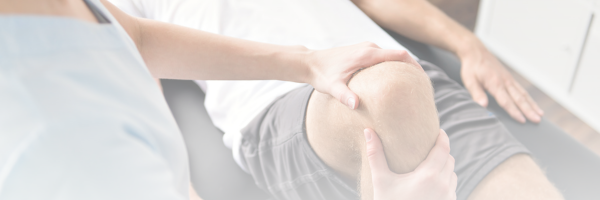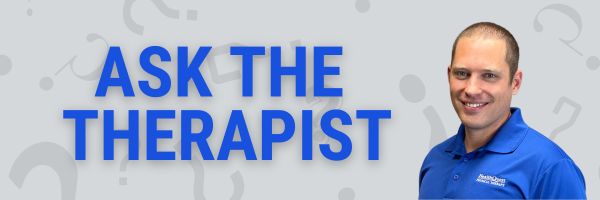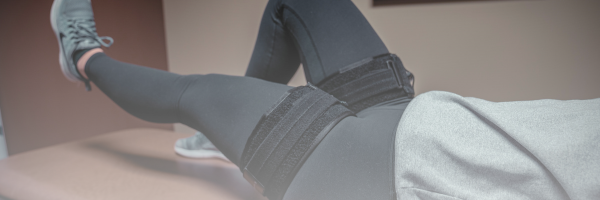1, 2, Buckle my Knee

1, 2, Buckle my Knee
We’re focusing on a common yet often overlooked issue: knee buckling. This condition can be frustrating and potentially lead to further injuries if not appropriately addressed. Let’s explore knee buckling, its causes, and how to improve your knee support and stability.
What is Knee Buckling?
Knee buckling refers to the sudden and involuntary collapse of the knee joint, which can happen during movement or even while standing still. Individuals may feel as though their knee gives out or becomes unstable, leading to a risk of falls.
Common Causes of Knee Buckling
Weak Muscles
Weakness in the quadriceps, hamstrings, or hip muscles can contribute to instability.
2. Injury
Ligament injuries (like ACL or MCL tears) can cause proprioceptive deficits, leading to buckling.
3. Arthritis
Degenerative changes in the knee joint can affect stability and balance.
4. Nerve Damage
Conditions such as diabetic neuropathy or multiple sclerosis can impair nerve function around the knee.

Strategies for Support and Stability
1. Strengthening Exercises
Focus on building strength in the muscles surrounding the knee. Exercises such as squats, lunges, and leg presses can be beneficial. Always consult with a physical therapist before starting a new exercise routine.
2. Balance Training
Incorporating balance exercises, such as single-leg stands or using a balance board, can enhance proprioception and stability.
3. Bracing
In some cases, a knee brace may provide the necessary support. Consult with your healthcare provider to determine if a brace is appropriate for your situation.
4. Stretching
Regular stretching can help maintain flexibility in the muscles surrounding the knee, reducing tension and improving overall function.
5. Activity Modification
Pay attention to activities that exacerbate knee buckling. Modifying your activities or using assistive devices like a cane may help reduce the risk of falls.
6. Education
Understanding your body mechanics can significantly improve stability. Work with a physical therapist to learn proper movement patterns.
When to Seek Help
If you experience frequent knee buckling, it’s essential to consult a healthcare professional. A physical therapist can thoroughly assess and develop a personalized treatment plan to address your specific needs.
Closing Thoughts…
Knee buckling can be a sign of underlying issues, but you can improve support and stability with the right approach. Remember, your physical therapist is here to help you every step of the way!
Stay active and healthy!
Feel free to reach out if you have questions or would like to schedule an appointment. We’re here to support your journey to better knee health!

This month’s ‘Ask the Therapist’ is brought to you by our newest clinic, Bloomfield Township owner and director Joel Fredrickson, PT, DPT, FDN, TARS.
Question: Do I Need a Brace for My Knee?
Answer
As a physical therapist, using a knee brace depends on several factors, including your specific condition, activity level, and overall knee stability. Here are some considerations to help you determine if a brace is right for you:
1. Type of Injury or Condition
– Ligament Injuries: If you’ve sustained a ligament injury (like an ACL or MCL tear), a brace may provide support during your recovery.
– Arthritis: For individuals with knee arthritis, a brace can help alleviate pain and improve stability.
– Patellar Tracking Issues: A brace may assist in proper alignment and support of the kneecap.
2. Stability Needs
– If you experience knee instability or “giving out” sensations, a brace can provide additional support during activities, helping you feel more secure.
3. Activity Level
– Consider your daily activities and sports. A brace can offer extra protection if you participate in high-impact or sports-related activities.
4. Rehabilitation Stage
– During rehabilitation, a brace can help protect the knee and allow you to engage in therapy exercises more safely.
5. Consultation with a Professional
– It’s essential to consult with a physical therapist or healthcare provider who can assess your knee condition and determine if a brace is appropriate for you. They can recommend the type of brace that best suits your needs (e.g., functional, rehabilitative, or prophylactic).
6. Potential Downsides
– While braces can be beneficial, over-reliance on them may lead to muscle weakness. It’s crucial to combine brace use with strengthening exercises to maintain muscle stability around the knee.
Conclusion
In summary, whether you need a knee brace depends on your situation. A thorough evaluation by a physical therapist can help guide you in making the best decision for your knee health. If you think a brace might benefit you, schedule an appointment to discuss your options and develop a comprehensive treatment plan tailored to your needs.

PT 101: What is Blood Flow Restriction Training?
Blood Flow Restriction (BFR) Training is a rehabilitation technique used by physical therapists to enhance muscle strength and hypertrophy (muscle growth) while using lighter weights. This method involves applying a specialized cuff or band around the upper part of the limb (such as the thigh for knee training) to restrict blood flow during exercise partially.

How Does BFR Work?
When blood flow is restricted, the body responds by increasing the production of muscle-building hormones and activating fast-twitch muscle fibers. This allows individuals to achieve significant strength gains with lower-intensity exercises, which can be particularly beneficial for individuals recovering from injuries or those who may have limitations that prevent heavy lifting.
Benefits of BFR for Knee Strengthening
1. Increased Muscle Strength: BFR training can lead to significant gains in muscle strength, especially in the quadriceps and hamstrings, which are crucial for knee stability.
2. Reduced Joint Stress: Using lighter weights, BFR helps minimize knee joint stress while promoting muscle engagement. This is particularly advantageous for individuals with knee pain or those recovering from surgery.
3. Enhanced Recovery: For those recovering from knee injuries, BFR can facilitate a quicker return to strength and function by promoting muscle retention and growth without the need for heavy loading.
4. Improved Functional Performance: Strengthening the muscles around the knee can enhance overall functional performance, including activities like walking, climbing stairs, and participating in sports.
5. Adaptability: BFR can be used in various rehabilitation scenarios, making it a versatile tool for physical therapists to tailor exercises based on individual needs.
Conclusion
Blood Flow Restriction Training (BFR) is an innovative approach to strengthening the knee and enhancing recovery. When performed correctly with your physical therapist, BFR can help you achieve your rehabilitation goals while minimizing stress on the joints. If you’re interested in exploring BFR as part of your knee-strengthening program, contact your physical therapist!
